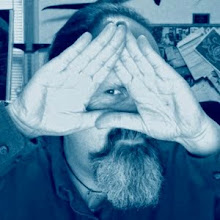
You will making a sculpture of an animal out of Papier-mâché. It can be “free-standing” or you may put it on a base (cardboard, wood, etc). Size: approx. 12”-18” high or long.
Papier-mâché (French for “chewed-up paper” due to its appearance) is a material that consists of pieces of paper stuck together using a wet paste. The crafted object becomes solid when the paste dries.

Tomorrow in class you will receive a handout with detailed step-by-step instructions and photo illustrations.
Your assignment for today-- read carefully:
1. Decide what kind of animal you would like to make a sculpture of.
2. Search the Internet for reference photos--
a. photos of actual animals
b. photos of sculptures of animals, realistic or stylized (They can be made from any materials, not necessarily Papier-mâché)
3. (optional) Download a few photos you like, and save them to your AAW folder (or e-mail them to yourself if you like-- store in Photobucket, whatever works for you).
4. Print two or three pictures-- here in the lab or on your own time, but bring them to class tomorrow!
5. Make a comment on this blog post, and copy/paste links to at least four reference photos:
--Two photos of real animals
--Two photos of sculptures of animals
To receive credit, include your name with your comment. Full name, or name/initial. For example: Reuben O.
*********
Optional for today, if you are finished with your comment and links....
Here is the information you will be receiving tomorrow if you would like to take a look:
Materials:
Newspaper, paste (flour/water), masking tape, latex primer, acrylic paint
Papier-mâché (French for “chewed-up paper” due to its appearance) is a material that consists of pieces of paper stuck together using a wet paste. The crafted object becomes solid when the paste dries. We will be using the traditional paste made from a mixture of flour and water.
Research:
1. Decide on what animal you would like your sculpture to be of.
2. Do some research—locate pictures of what this type of animal looks like.
3. Get copies of pictures—from books, magazines, or online (print them).
4. Do some more research—find pictures of other animal sculptures (papier-mâché or other materials). Maybe get copies of some of these as well.
Construction:
1. You may want to make a sketch of the way you want your sculpture to look.
2. Begin construction by making the main body shape. Crumple some newspaper into the appropriate shape, and wrap it with masking tape. (You do not have to cover the whole shape with tape, just use enough to keep it together.)
3. Using the same method, create arms, legs, head, tail, etc. (If they are really narrow, you may want to use a heavy wire or coat hanger inside the paper to give it strength.)
4. Attach limbs and head to body with masking tape.
5. Make sure that your sculpture is fairly solid, and that it looks pretty much how you want it to be.
Add papier-mâché:
1. Before you start, make sure that your table is covered, so you don’t get paste all over the table!
2. Mix up some paste, using around 1 cup water to 1 cup flour. Put the flour and water in a bowl; use a whisk or fork to mix—mix until smooth, no lumps. Your paste should be kind of like pancake batter—not too thick, but not too runny.
3. Tear a bunch of strips of newspaper. Make them about one inch wide, and four to six inches long. (tear paper from top to bottom, and it will tear more or less evenly.)
4. One piece at a time, dip the paper into the paste making sure it is totally covered—then, squeeze out the excess paste by running the paper through a couple of your fingers.
5. Apply the paper to your sculpture, and smooth it out with your fingers.
6. Continue this process until the whole sculpture has been covered. You will be overlapping your paper to some extent; try not to make it more than 3 or 4 layers thick at this point. Don’t over-do it; if it stays wet for too long, your sculpture may develop mold.
7. Allow sculpture to dry completely, typically 24 hours.
8. Repeat this process at least two more times, more if necessary.
9. By now your sculpture should be nice and firm, with a hard surface. You may use sandpaper if you want to smooth the surface a bit, but you may also want to leave it “as is”, with a nice texture on it. (If using sandpaper, make sure that your sculpture is totally dry!)
Painting:
1. Paint your sculpture with a coat of laxtex primer. Let it dry. You may need a second coat of primer.
2. Use acrylic paint to color your sculpture, adding stripes, patterns etc. You have a couple options for painting your sculpture:
a. realistic colors and patterns
b. decorative colors and patterns
3. If desired, a final coat of acrylic matte medium or Mod Podge may be used.

